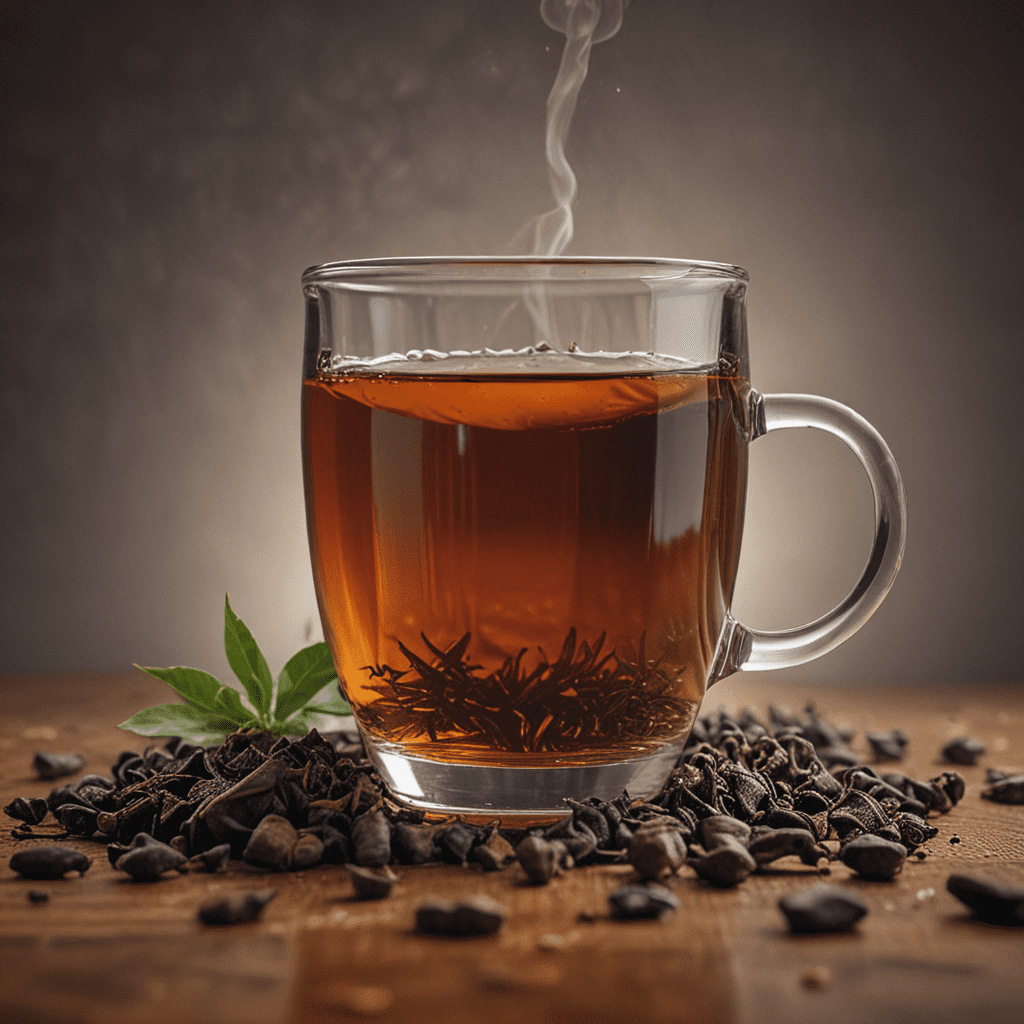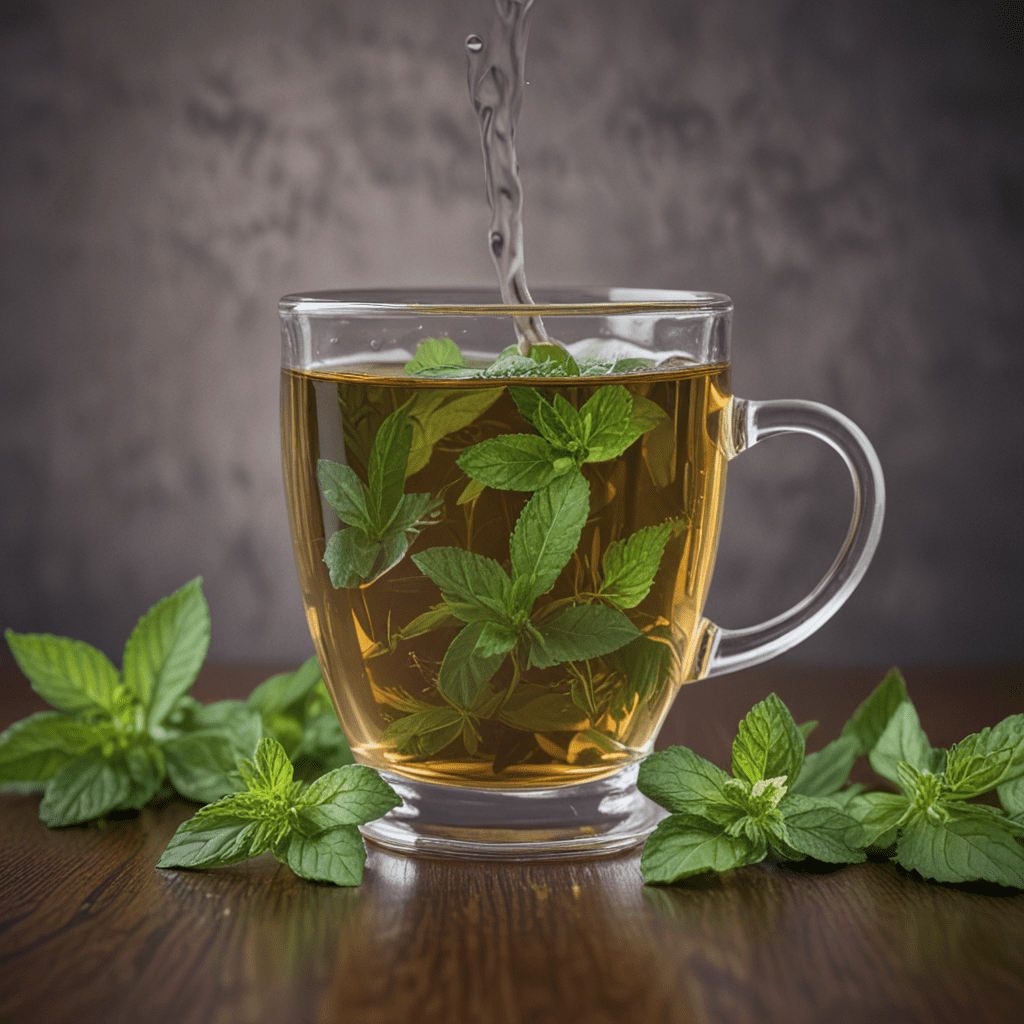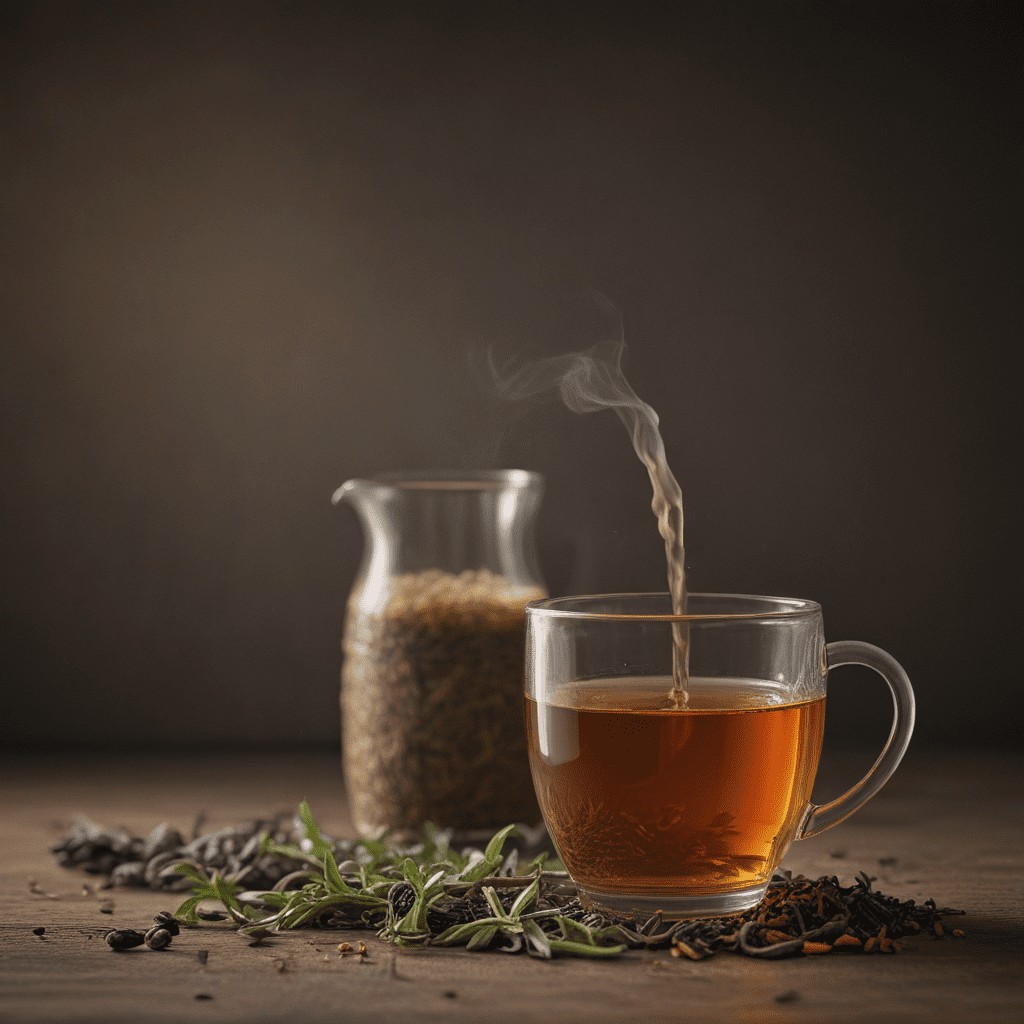Assam Tea: A Flavorful Adventure
I. Introduction
Assam tea, a beloved beverage renowned for its robust flavor and captivating aroma, has captivated tea enthusiasts around the globe. Originating from the lush Brahmaputra Valley in India, this exquisite tea holds a significant place in the hearts of tea connoisseurs and the cultural heritage of Assam. Discover the captivating world of Assam tea, exploring its unique growing conditions, traditional harvesting and processing methods, and the symphony of flavors that enchant the palate.
II. Unique Growing Region
The Brahmaputra Valley, a natural sanctuary for tea cultivation, provides the ideal environment for Assam tea to thrive. The valley's fertile soil, abundant rainfall, and warm temperatures foster lush tea gardens, where the tea plants flourish. The distinct climate and topography of the region contribute to the tea's characteristic malty and full-bodied flavor profile, setting it apart from other tea varieties.
III. Harvesting and Processing
Traditional methods of plucking and withering are employed to ensure the highest quality tea leaves. The leaves are carefully hand-picked, preserving their delicate flavors and aromas. The withering process allows the leaves to lose some of their moisture, concentrating their flavor compounds. Oxidation, a crucial step in tea processing, follows, where the leaves are exposed to air, developing their distinctive malty character. Finally, the leaves are rolled, shaping them and further enhancing their flavor.
IV. Flavour Characteristics
Assam tea is revered for its bold, malty taste, complemented by hints of spice, honey, and citrus. The robust flavor profile stems from the unique growing conditions and traditional processing methods. Variations in flavor exist, influenced by seasonality and processing techniques, adding to the diverse sensory experience of Assam tea.
V. Health Benefits
Beyond its delightful taste, Assam tea is also renowned for its health-promoting properties. Rich in antioxidants and polyphenols, it possesses potential cardiovascular, anti-inflammatory, and cognitive benefits. Studies have shown that consuming Assam tea may reduce the risk of chronic diseases, contributing to overall well-being.
VI. Brewing Methods
Brewing Assam tea requires careful attention to temperature and time to extract its full flavor potential. The optimal brewing temperature ranges between 195-205°F (90-96°C). Steeping time varies depending on personal preferences, but generally, 3-5 minutes is recommended for a well-balanced cup. Traditional brewing involves using a teapot, while Western-style brewing employs a tea infuser or tea bag. Cold brewing, a method that involves steeping tea leaves in cold water for an extended period, offers a smoother, less astringent flavor profile.
VII. Gastronomic Delights
Beyond its role as a refreshing beverage, Assam tea also finds its place in culinary creations. Its robust flavor complements desserts, pastries, and savory dishes. When paired with chocolate, Assam tea's malty notes enhance the chocolate's richness. In pastries, such as scones or tea cakes, Assam tea adds a subtle depth of flavor. Its bold character also shines in savory dishes, marinades, and sauces, adding a unique dimension to culinary experiences.
VIII. Cultural Significance
Assam tea is deeply intertwined with the cultural fabric of Assam. It serves as a symbol of hospitality, unity, and regional pride. Tea is an integral part of Assamese daily life, enjoyed in homes, tea stalls, and social gatherings. The tea industry has played a vital role in shaping the region's economy and cultural identity, fostering a deep connection between the people of Assam and their beloved tea.
IX. Sustainability and Ethical Practices
Sustainable farming practices and fair trade initiatives are crucial in preserving the legacy of Assam tea cultivation. Many tea estates prioritize environmental conservation, adopting techniques that minimize ecological impact and protect the natural ecosystem. Fair trade practices ensure that tea workers receive fair wages and working conditions, promoting ethical and sustainable tea production.
X. Experiencing Assam Tea
Immerse yourself in the captivating world of Assam tea by visiting tea estates and witnessing traditional processing methods firsthand. Tour the lush tea gardens, learn about the intricate steps involved in tea production, and engage with the skilled tea artisans. Engage your senses as you savor the aromatic flavors and experience the rich cultural heritage surrounding Assam tea. Whether you're a seasoned tea enthusiast or embarking on a new tea adventure, Assam tea promises an unforgettable journey of taste, tradition, and discovery.
FAQ
Q: What sets Assam tea apart from other tea varieties?
A: Assam tea's bold, malty flavor profile, influenced by its unique growing conditions and processing methods, distinguishes it from other tea varieties.
Q: Can Assam tea be enjoyed cold?
A: Yes, Assam tea can be cold-brewed, resulting in a smoother, less astringent flavor profile. This method involves steeping tea leaves in cold water for an extended period.
Q: What are the potential health benefits of Assam tea?
A: Assam tea is rich in antioxidants and polyphenols, offering potential cardiovascular, anti-inflammatory, and cognitive benefits.
Q: How long should Assam tea be steeped?
A: Steeping time for Assam tea varies depending on personal preferences, but generally, 3-5 minutes is recommended for a well-balanced cup.
Q: What is the optimal brewing temperature for Assam tea?
A: The optimal brewing temperature for Assam tea ranges between 195-205°F (90-96°C).



